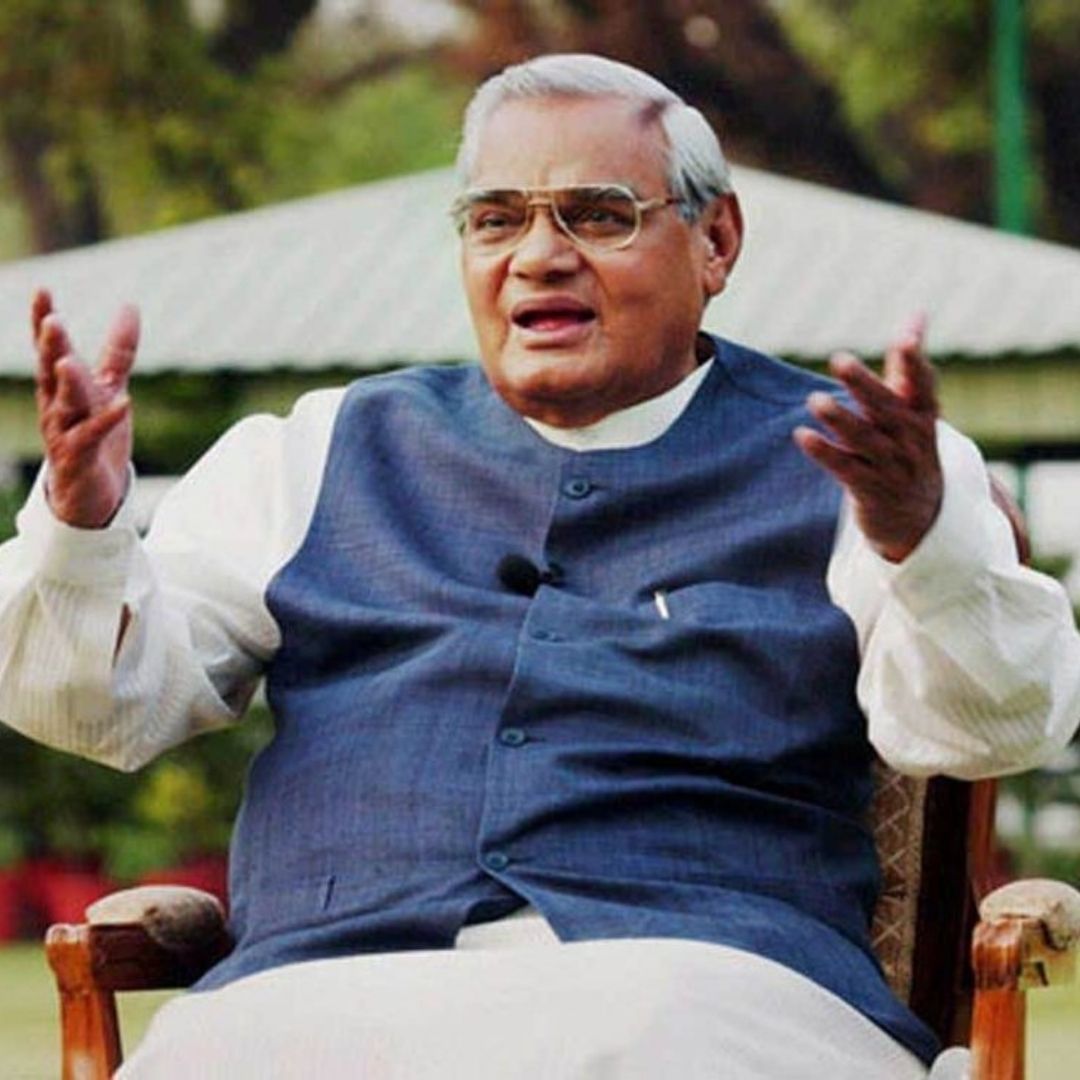
Image Credits: Wikipedia
Atal Bihari Vajpayee: Remembering The Best Hindi Orator In The History Of Parliament
Writer: Tashafi Nazir
For most people, journalism sounds hectic and chaotic. For her, it's a passion she has been chasing for years. With an extensive media background, Tashafi believes in putting efforts on presenting a simple incident in the most interesting way.
India, 16 Aug 2021 1:32 PM GMT
Editor : Madhusree Goswami |
A mountain girl trying to make it big in the city. She loves to travel and explore and hence keen on doing on-ground stories. Giving the crux of the matter through her editing skills is her way to pay back the journalism its due credit.
Creatives : Tashafi Nazir
For most people, journalism sounds hectic and chaotic. For her, it's a passion she has been chasing for years. With an extensive media background, Tashafi believes in putting efforts on presenting a simple incident in the most interesting way.
His orational skills had impressed Prime Minister Jawaharlal Nehru who had predicted that Vajpayee would someday become the prime minister of India.
"Satta ka khel chalega (the game of power will go on). Governments will come and go. Parties will be made and unmade. This country should survive, its democracy should survive," Atal Bihari Vajpayee had said, just before his government fell after a 13-day tenure in 1996. The speech was made in the Lok Sabha in Parliament, for which Vajpayee won accolades and inked his name as an orator par excellence.
Born on December 25, 1924, Vajpayee was an Indian statesman who served three times as the country's Prime Minister. Known as one of the co-founders and a senior leader of the Bharatiya Janata Party (BJP), he served his first full-term from the year 1999 to 2004. However, it was his first term only when he got much recognition for his memorable speech, which is also regarded as his best ever. He breathed his last on August 16, 2018, due to health complications.
His Epic Resignation Speech
Before the BJP emerged as the single largest party in the general elections in 1996, Vajpayee was in the Lok Sabha for a trust vote, after becoming a Prime Minister. With BJP falling short of the halfway mark, then President Shankar Dayal Sharma invited Vajpayee to form the government and gather enough MPs. Failing to win the support of even one MP, Vajpayee was up against a trust vote, knowing he would lose and chose to resign, India Today had reported.
"We bow to majority and we will not rest until we fulfil our national mission. Mister Speaker, here comes my resignation," Vajpayee had said during his resignation speech that will remain etched forever.
Despite his government losing a no-confidence motion in 1999, the former Prime Minister did not take a dig at Congress president Sonia Gandhi who had declared to the media, "We have 272 and we hope to get more".
Defended Pokhran Nuclear Tests
He again showed his wit after defending the Pokhran nuclear tests saying how he is surprised to see people criticise the tests. "When in 1974 then prime minister Indira Gandhi had carried out the tests, we welcomed it even while we were in the opposition. Was there any threat to the nation at the time," he had said during his parliament speech, displaying his oratory skills, NDTV reported.
Charming Personality
Besides being the best Hindi orator Parliament has ever seen, Vajpayee was a noted poet and a writer too, which reflected in his Parliament speeches. He was also known as a man who loved mountains and freshly-caught fishes, according to NDTV.
Not only his close ones, but his politics and statesmanship refllected he was thoroughly loved by his rivals as well. After his health deteriorated in June 2018, the first one to pay him a visit to AIIMS was the Congress leader Rahul Gandhi.
His orational skills had so impressed Prime Minister Jawaharlal Nehru that he right there predicted that Vajpayee would someday become the prime minister of India. With his mastery, he had also won the prominence of being the most powerful defender of the Jana Sangh's policies.
 All section
All section














